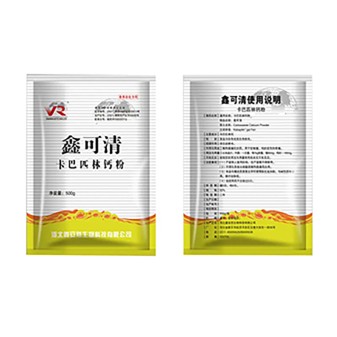- Afrikaans
- Albanian
- Amharic
- Arabic
- Armenian
- Azerbaijani
- Basque
- Belarusian
- Bengali
- Bosnian
- Bulgarian
- Catalan
- Cebuano
- Corsican
- Croatian
- Czech
- Danish
- Dutch
- English
- Esperanto
- Estonian
- Finnish
- French
- Frisian
- Galician
- Georgian
- German
- Greek
- Gujarati
- Haitian Creole
- hausa
- hawaiian
- Hebrew
- Hindi
- Miao
- Hungarian
- Icelandic
- igbo
- Indonesian
- irish
- Italian
- Japanese
- Javanese
- Kannada
- kazakh
- Khmer
- Rwandese
- Korean
- Kurdish
- Kyrgyz
- Lao
- Latin
- Latvian
- Lithuanian
- Luxembourgish
- Macedonian
- Malgashi
- Malay
- Malayalam
- Maltese
- Maori
- Marathi
- Mongolian
- Myanmar
- Nepali
- Norwegian
- Norwegian
- Occitan
- Pashto
- Persian
- Polish
- Portuguese
- Punjabi
- Romanian
- Russian
- Samoan
- Scottish Gaelic
- Serbian
- Sesotho
- Shona
- Sindhi
- Sinhala
- Slovak
- Slovenian
- Somali
- Spanish
- Sundanese
- Swahili
- Swedish
- Tagalog
- Tajik
- Tamil
- Tatar
- Telugu
- Thai
- Turkish
- Turkmen
- Ukrainian
- Urdu
- Uighur
- Uzbek
- Vietnamese
- Welsh
- Bantu
- Yiddish
- Yoruba
- Zulu
Dec . 21, 2024 17:44 Back to list
gentamicin sulfate for ear infection
Gentamicin Sulfate for Ear Infection An Overview
Ear infections, known medically as otitis media or otitis externa, are among the most common conditions affecting individuals of all ages, especially children. These infections can cause significant discomfort and lead to complications if not treated effectively. A commonly prescribed antibiotic for certain types of ear infections is gentamicin sulfate. This article aims to provide an overview of gentamicin sulfate, its uses, potential side effects, and considerations in the treatment of ear infections.
What is Gentamicin Sulfate?
Gentamicin sulfate is an aminoglycoside antibiotic that works by inhibiting bacterial protein synthesis, ultimately leading to bacterial cell death. It is particularly effective against a variety of gram-negative and some gram-positive bacteria. Gentamicin is commonly used to treat severe infections caused by susceptible organisms, including those affecting the ears, skin, urinary tract, and respiratory system. In the case of ear infections, it is often prescribed in either injectable form or as an ear drop solution.
Indications for Use in Ear Infections
Gentamicin sulfate is typically indicated for use in cases of bacterial ear infections, specifically acute otitis media, which is an infection of the middle ear, and otitis externa, often referred to as swimmer's ear, affecting the outer ear canal. While not the first line of treatment—amoxicillin is typically preferred due to its effectiveness in common pathogens like Streptococcus pneumoniae—gentamicin may be utilized in specific situations, such as when the infection is severe, refractory, or caused by bacteria resistant to other antibiotics.
The choice to use gentamicin sulfate is guided by factors such as the severity of the infection, the patient's age and medical history, and the antimicrobial susceptibility of the infecting organism. It is essential for healthcare providers to conduct a thorough evaluation and, if possible, cultures of ear fluid to determine the appropriate course of treatment.
Administration and Dosage
gentamicin sulfate for ear infection

When gentamicin sulfate is used for ear infections, it is essential to follow the prescribed dosage instructions from a healthcare provider. The dosage may vary based on the individual's age, weight, renal function, and the severity of the infection. If used in the ear drop form, patients must adhere strictly to application guidelines to maximize efficacy while minimizing potential side effects.
Typically, the dosage of gentamicin eye/ear drops for adults involves administering one to two drops in the affected ear every 8 hours for a specified duration. For pediatric patients, dosages are calculated based on weight and should be monitored closely.
Potential Side Effects and Precautions
Like all medications, gentamicin sulfate may cause side effects. Common side effects include local irritation, itching, or discomfort at the site of administration. In rare cases, systemic absorption of gentamicin can occur, leading to more serious side effects such as nephrotoxicity (kidney damage) and ototoxicity (hearing loss), particularly if used inappropriately or in higher-than-recommended doses.
It is crucial for healthcare providers to assess a patient's renal function prior to initiating gentamicin therapy, especially for those with existing kidney disease or in elderly populations. Patients should be informed about potential signs of adverse reactions, such as changes in hearing, balance, or renal function, and instructed to seek medical attention if they experience concerning symptoms.
Conclusion
Gentamicin sulfate is an effective antibiotic option for treating specific ear infections, particularly when first-line treatments fail or are contraindicated. Its use should be closely monitored by healthcare professionals to avoid potential side effects and ensure the best outcomes for patients. Individuals experiencing symptoms of an ear infection should consult their healthcare provider promptly to determine the most appropriate treatment, reinforcing the importance of timely and effective intervention in managing ear health. As always, adhering to prescribed treatment regimens and being vigilant about side effects is critical for a safe and successful recovery.
-
Guide to Oxytetracycline Injection
NewsMar.27,2025
-
Guide to Colistin Sulphate
NewsMar.27,2025
-
Gentamicin Sulfate: Uses, Price, And Key Information
NewsMar.27,2025
-
Enrofloxacin Injection: Uses, Price, And Supplier Information
NewsMar.27,2025
-
Dexamethasone Sodium Phosphate Injection: Uses, Price, And Key Information
NewsMar.27,2025
-
Albendazole Tablet: Uses, Dosage, Cost, And Key Information
NewsMar.27,2025













